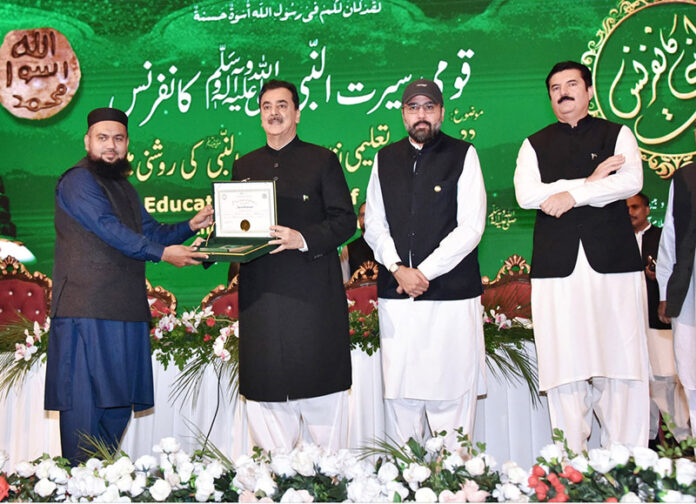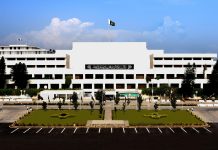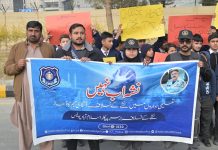
By Ali Imran
ISLAMABAD: Senate Chairman Syed Yousuf Raza Gilani on Tuesday said Islam is a complete code of life, providing guiding principles for all aspects of life.
Expressing his views while addressing the concluding session of the Seerat-un-Nabi (PBUH) Conference, he highlighted that by following these guiding principles, we can successfully tackle contemporary challenges.
He further remarked that the primary objective of the Islamic message is the moral upbringing of individuals, the purification of soul, and the creation of an exemplary human being for success in this world and the life hereafter. He stressed that these goals cannot be achieved without knowledge.
In his address to the large gathering of scholars, researchers, and experts from across the country, the chairman said Prophet Hazrat Muhammad (Peace Be Upon Him) laid the foundation of an exemplary Islamic society.
He also mentioned that the Muslims of the early centuries succeeded due to their intellectual and moral superiority. He underscored that the Prophet Hazrat Muhammad (Peace Be Upon Him) made special arrangements for the education and training of the Ummah and his companions throughout his life.
He emphasized that education is a fundamental part of Islamic society, and without it, the dream of an ideal Islamic society cannot be realized. It is the duty of an Islamic state to ensure the education of its citizens, he observed.
Highlighting the significance of the education system, the chairman said the primary aim of any education system should be the development of a complete human being. He stressed that education should focus on producing individuals who are morally upright and fully aware of their religious, social, and ethical responsibilities.
He further stated that seeking knowledge is obligatory for every Muslim, which not only reflects our individual responsibility but also places a collective duty on society to make education accessible and increase knowledge-sharing.
The chairman mentioned that during his tenure as prime minister, he introduced a constitutional amendment that declared the right to education as a fundamental constitutional right. Under Article 25-A of the Constitution, the state is obligated to provide free and compulsory education to all children aged five to sixteen, as prescribed by law, he added.
However, he termed it unfortunate that nearly 26 million children in Pakistan are still out of school. He emphasized the need to make the education system comprehensive, addressing the national and social needs in all areas of life.
The chairman stressed the importance of equipping the country’s youth with education and skills aligned with modern demands and market needs, especially for the management of institutions, the development of industrial and agricultural sectors, and other important fields.
He highlighted the need for an education system that prepares individuals for the real world, producing citizens who are aware of societal needs and challenges, and capable of solving national problems. He concluded by emphasizing that, in the light of the life of the Prophet Hazrat Muhammad (Peace Be Upon Him), there is an urgent need for an education system that equips future generations with skills that are beneficial on both an individual and societal level.
He emphasized the importance of establishing a comprehensive education system that produces socially, morally, and religiously responsible citizens.
The chairman also congratulated and commended the Minister for Religious Affairs and Interfaith Harmony, Chaudhry Salik Hussain, the secretary, and other organizers for the successful organization of the conference.





